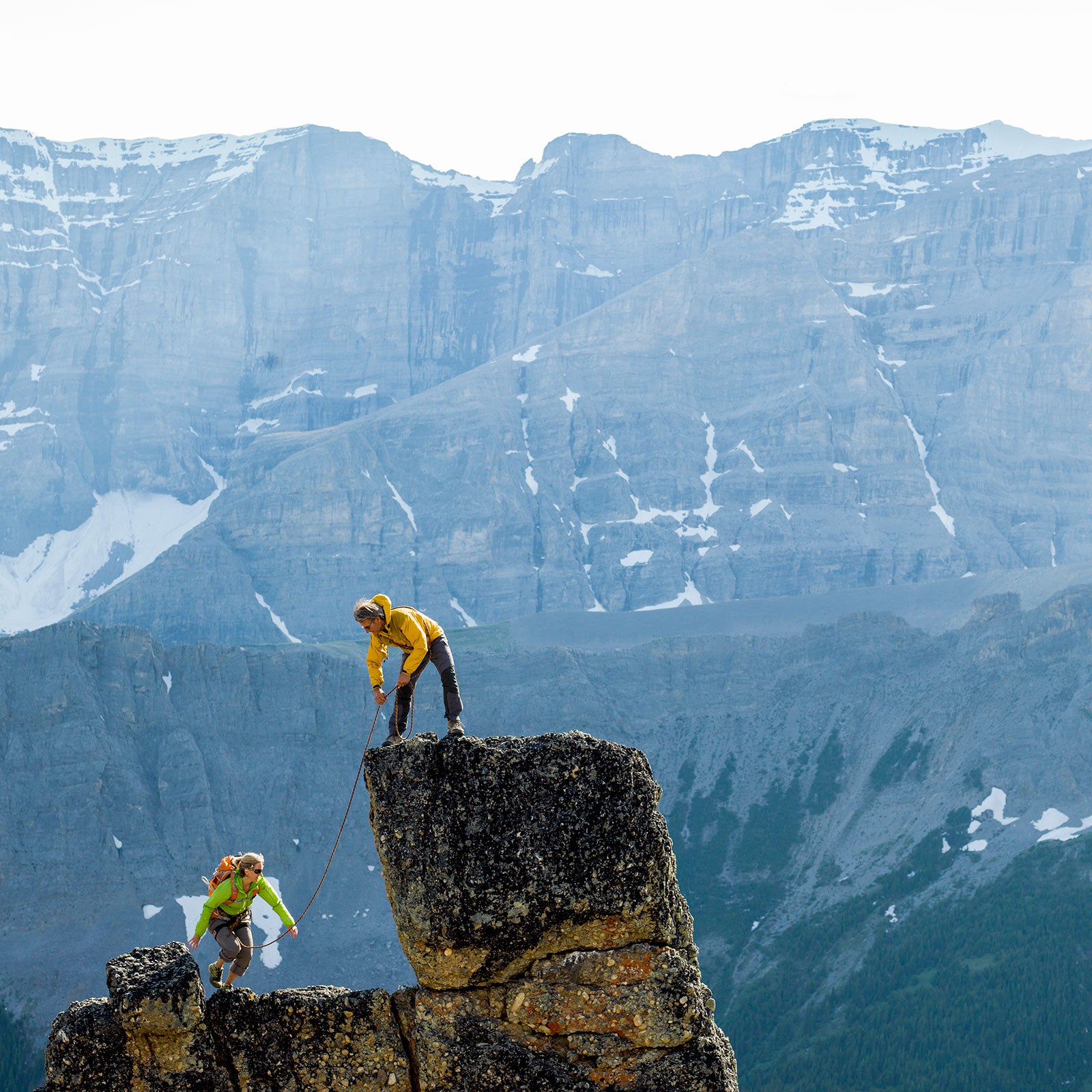Welcome to Tough Love. Every other week, we’re answering your questions about dating, breakups, and everything in between. Our advice giver is Blair Braverman, dogsled racer and author of . Have a question of your own? Write to us at toughlove@outsideim.com.
I love being outside. I knew since I was 16 that I couldn’t work in an office and wanted to be outside. I started my working career at a camp-type canoe outfitter where we took groups in, taught them everything we knew, and sent them out into canoe country with a guide. It was vigorous and personal, and every morning I would jump out of bed with excitement.
School was very different for me—I struggled with a myriad of learning disabilities, and the sit-down-and-work kind of lifestyle drove me wild. I also struggle with depression and anxiety, something that being indoors makes worse.
Here’s my dilemma: I don’t know how to make my life comfortable (having a home/rental, a car, paying off my student loans, buying groceries, clothes, etc.) and have a career outside. I particularly am interested in sports that require equipment, time, and (to be able to pursue them full-time) money.
I deeply struggle with making money and being happy. Currently, I have two jobs and am afloat, but this winter, I took a five-month outdoors job where I had the most fun of my entire life but barely made ends meet.
It doesn’t cost money to walk outside of your house and breathe fresh air, but how do I take steps to make myself happy by moving to a career in the outdoors? I feel like I am betraying myself and wasting years of my life.
A career move like this can be scary but not impossible—especially because you’ve done the work to gain clarity. You know what you want, and now it’s just a matter of figuring out the best way to get there.
First, calculate how much money you need for expenses. What are your loan payments? What do you need for rent and food in your area? Do you travel to see family? If even the basics (like, say, health care) feel out of reach, you should know that it’s not you, it’s that the odds are stacked against you: the United States’ wage system is not designed to make basic needs accessible on a minimum-wage or entry-level income. The system rewards privilege and access over creativity and entrepreneurship; it creates a treadmill that is designed to move faster than people can run. So make sure to vote for political candidates who prioritize labor rights and living wages.
As for the specifics of finding outdoor careers, once you’ve figured out what income you need to get by—and to build in some savings for emergencies—you can determine what jobs suit your needs. There are a couple of main tracks for outdoorsy jobs, although it doesn’t mean you’re limited to them; you can bring a wilderness angle to careers from journalism to finance (see: ���ϳԹ��� magazine and the entire field of conservation finance). But for right now, let’s talk about entry-level opportunities.
A lot of outdoor work is seasonal, which makes things tricky if you’re committed to having one home base. For many workers, what this means is that they might take one season each year to make money—maybe with an outdoor job that pays well but isn’t their favorite—and follow their less lucrative passion projects the rest of the year. My good friend, for instance, is able to devote much of each winter to backcountry skiing because she makes about $40,000 as a wildland firefighter during the warmer months. And a lot of professional mushers help support their sport through summers of commercial fishing or leading dogsled tours for cruise-ship passengers. These jobs are usually not glamorous and may require a fair bit of discomfort: weird sleeping arrangements, few showers, and so on. But there’s a difference between discomfort and unhappiness, and if you know that working in nature is good for your mental health, you might find yourself thriving in situations you might not otherwise have considered.
One of the classic outdoor jobs is guiding, which can be a blast if you like sharing your interests with people—and it sounds like this is a track you’ve had a good experience with. Guides don’t make much money, but you might also get room and board, and you’ll be practicing the sports and activities that you love, which can lead to other opportunities down the line. Depending on your qualifications, you could apply for work with the U.S. Forest Service, (the National Outdoor Leadership School), , or other major organizations. If you’re up for travel, be sure to seek out international postings, too. Do you like kids (and sometimes adults)? Consider environmental education, which can range from visiting classrooms to leading nature walks and outdoor classes. How about animals? You could work in wildlife rehab or pursue certification as a vet tech. Do you get excited about gear? You can work at an outdoor store, learning about the industry and helping other people prepare for their adventures.
Speaking of gear, let’s talk about getting it affordably, because that ish can be expensive. If you’re a guide or have another outdoor job, you can apply for pro deals from related brands, which often means getting a 50 percent discount on new products. If you’re looking for something more specialized, consider used options online; I’ve had good luck posting on Facebook groups for sporting equipment and using eBay alerts for specific gear items in my size. And if you enjoy a bit of a treasure hunt, explore garage sales and thrift stores in wilderness-adjacent areas, especially in wealthier communities. Thrift stores in expensive tourist towns can be a gold mine at the end of a season, when people donate new and barely used gear to make space in their closets and garages.
It might take some time to reroute your life, but there are outdoor jobs out there. In the meantime, take care of yourself: bike to work, volunteer with forest cleanups, and remember that nothing is wasted if you’re moving in the direction of your goals.


